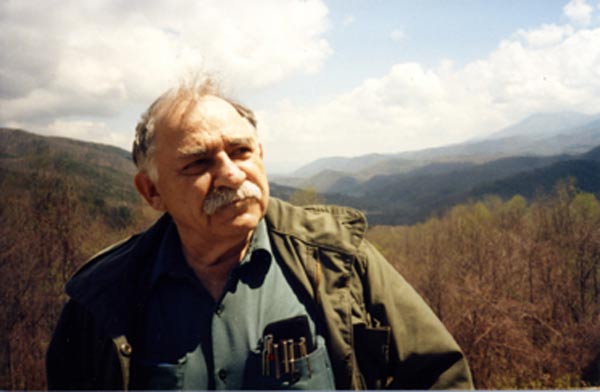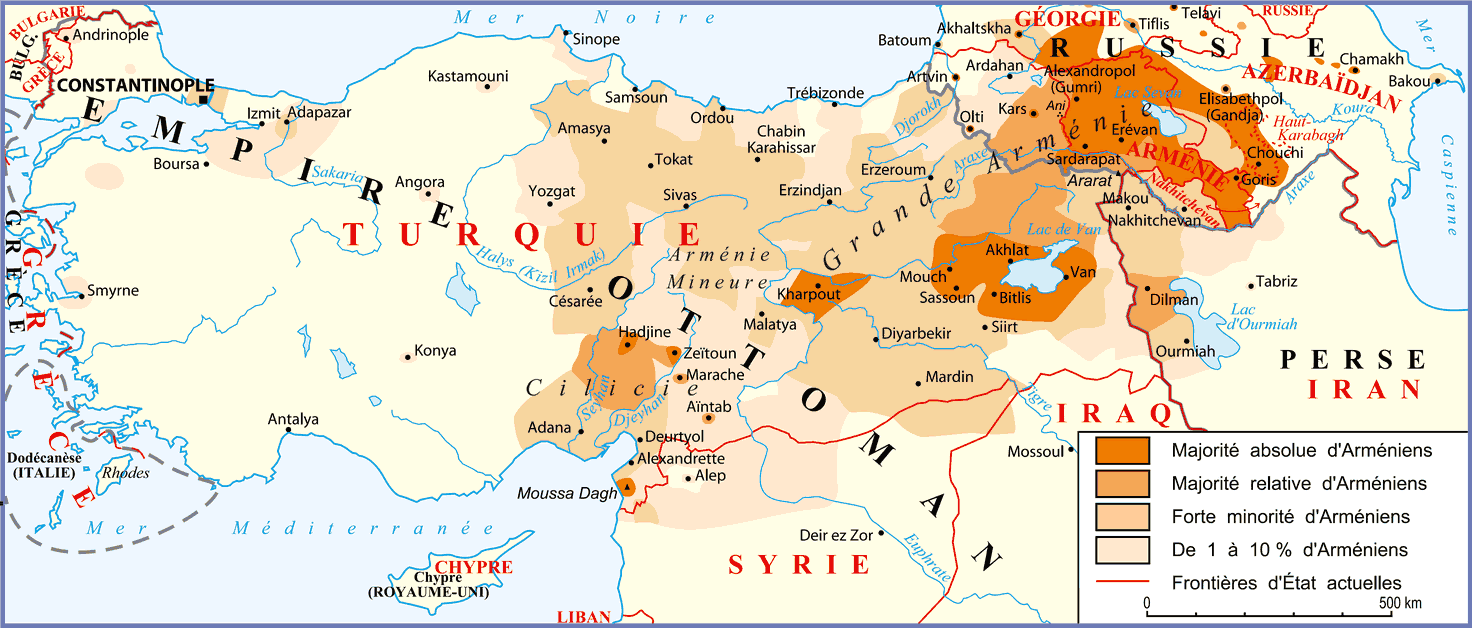Image may be NSFW.
Clik here to view.
-
-
-
-
-
-
Armenia
Image may be NSFW.
Clik here to view.
Image may be NSFW.
Clik here to view.
Image may be NSFW.
Clik here to view.
Image may be NSFW.
Clik here to view.
Image may be NSFW.
Clik here to view.
Image may be NSFW.
Clik here to view.
All people of South West Asia unite!
Murray Bookchin (January 14, 1921 – July 30, 2006) was an American anarchist and libertarian socialist author, orator, historian, and political theoretician. A pioneer in the ecology movement, Bookchin initiated the critical theory of social ecology within anarchist, libertarian socialist and ecological thought.
He was the author of two dozen books covering topics in politics, philosophy, history, urban affairs, and ecology. Among the most important were Our Synthetic Environment, Post-Scarcity Anarchism, and The Ecology of Freedom.
In the late 1990s he became disenchanted with the increasingly apolitical lifestylism of the contemporary anarchist movement and stopped referring to himself as an anarchist. Instead, he founded his own libertarian socialist ideology called Communalism.
Bookchin was an anti-capitalist and vocal advocate of the decentralisation of society along ecological and democratic lines. His writings on libertarian municipalism, a theory of face-to-face, assembly democracy, had an influence on the Green movement and anti-capitalist direct action groups such as Reclaim the Streets.
Though Bookchin, by his own recognition, failed to win over a substantial body of supporters during his own lifetime, his ideas have nonetheless influenced movements and thinkers across the globe. Notable among these is the Kurdistan Workers’ Party (PKK), a guerilla organisation in Turkey which has fought the Turkish state since the 1980s to try to secure greater political and cultural rights for the country’s Kurds.
Abdullah Öcalan (born 4 April 1948), also known as Apo (short for Abdullah and “uncle” in Kurdish), is one of the founding members of the militant organization the Kurdistan Workers’ Party (PKK) in 1978 in Turkey, which is listed as a terrorist organization internationally by some states and organizations, including NATO, the United States and the European Union.
Janet Biehl (born 1953) is a writer associated with social ecology, the body of ideas developed and publicized by Murray Bookchin. In 1986 she attended the Institute for Social Ecology and there began a collaborative relationship with Bookchin, working intensively with him over the next two decades in the explication of social ecology from their home in Burlington, Vermont. From 1987 to 2000 she and Bookchin co-wrote and co-published the theoretical newsletter Green Perspectives, later renamed Left Green Perspectives.
She is the editor and compiler of The Murray Bookchin Reader (1997); the author of The Politics of Social Ecology: Libertarian Municipalism (1998) and Rethinking Ecofeminist Politics (1991); and coauthor (with Peter Staudenmaier) of Ecofascism: Lessons from the German Experience (1995).
She has also authored numerous articles about or related to Bookchin’s thought, especially libertarian municipalism, social ecology and eco-feminism. Bookchin considered her The Murray Bookchin Reader to be the best introduction to his work.
Biehl is a supporter of the Kurdish rights movement in Turkey. Abdullah Öcalan, leader of the insurgent Kurdistan Workers’ Party, had become an avid reader of Bookchin’s work after he was captured and imprisoned in 1999 and tried to arrange a meeting with Bookchin before he died, but was unsuccessful. Following the 2006 death of Bookchin, Biehl became involved in pro-Kurdish activism. She has since translated the 2011 book Democratic Autonomy in North Kurdistan from German into English.
The PKK has a history with the al-Assad regime. Its founding leader Abdullah Öcalan had been based in the Syrian capital Damascus thanks to Hafez al-Assad, Bashar’s father, until Turkey threatened Syria with war in 1998. This ended up with Öcalan’s arrest in 1999.
Öcalan was arrested in 1999 by the CIA and Turkish security forces in Nairobi and taken to Turkey, where he was sentenced to death under Article 125 of the Turkish Penal Code, which concerns the formation of armed gangs. The sentence was commuted to aggravated life imprisonment when Turkey abolished the death penalty in support of its bid to be admitted to membership in the European Union. From 1999 until 2009, he was the sole prisoner on the İmralı island, in the Sea of Marmara.
Since his incarceration, Öcalan has significantly changed his ideology, reading Western social theorists such as Murray Bookchin, Immanuel Wallerstein, Fernand Braudel, fashioned his ideal society as “Democratic Confederalism” (drawing heavily on Bookchin’s Communalism), and refers to Friedrich Nietzsche as “a prophet”.
He also wrote books and articles on the history of pre-capitalist Mesopotamia and Abrahamic religions. He is the author of more than 40 books, four of which were written in prison. Many of the notes taken from his weekly meetings with his lawyers have been edited and published.
Öcalan has acknowledged the violent nature of the PKK, but says that the period of armed warfare was defunct and a political solution to the Kurdish question should be developed. The conflict between Turkey and the PKK has resulted in over 40,000 deaths, including PKK members, the Turkish military, and civilians, both Kurdish and Turkish. From prison, Öcalan has published several books, the most recent in 2012.
Öcalan had his lawyer, Ibrahim Bilmez, release a statement 28 September 2006, calling on the PKK to declare a ceasefire and seek peace with Turkey. Öcalan’s statement said, “The PKK should not use weapons unless it is attacked with the aim of annihilation,” and that it is “very important to build a democratic union between Turks and Kurds. With this process, the way to democratic dialogue will be also opened”. He made another such declaration in March 2013.
On 31 May 2010, however, Öcalan said he was abandoning an ongoing dialogue between him and Turkey saying that “this process is no longer meaningful or useful”. Turkey ignored his three protocols for negotiation that included (a) his terms of health and security (b) his release and (c) a peaceful resolution to the Kurdish issue in Turkey.
Though the Turkish government received these protocols, they were never published. Öcalan stated that he would leave the top PKK commanders in charge of the conflict. However, he also said that his comments should not be misinterpreted as a call for the PKK to intensify its armed conflict with the Turkish state.
More recently, Öcalan has shown renewed cooperation with the Turkish government and hope for a peaceful resolution to three decades of conflict. On 21 March 2013, Öcalan declared a ceasefire between the PKK and the Turkish state.
Öcalan’s statement was read to hundreds of thousands of Kurds gathered to celebrate the Kurdish New Year and it states, “Let guns be silenced and politics dominate… a new door is being opened from the process of armed conflict to democratization and democratic politics. It’s not the end. It’s the start of a new era.”
Turkish Prime Minister Recep Tayyip Erdogan welcomed the statement and hope for a peaceful settlement has been raised on both sides. Soon after Öcalan’s declaration was read, the functional head of the PKK, Murat Karayılan responded by promising to implement the ceasefire, stating, “Everyone should know the PKK is as ready for peace as it is for war”.
On 25 April, PKK announced that it would be withdrawing all its forces within Turkey to Northern Iraq. According to government and to The Kurds and to the most of the press, this move marks the end of 30 year old conflict. Second phase which includes constitutional and legal changes towards the recognition of human rights of the Kurds starts simultaneously with withdrawal.
The Islamic State of Iraq and the Levant (ISIL) was founded in 2013, based on the Islamic State of Iraq (ISI), which previously called itself al-Qaeda in Mesopotamia (AQM). ISI was founded in 2004 in reaction to the U.S.-led invasion of Iraq in 2003. So, the U.S. is a leading actor in this theater from the beginning.
The renaming of ISI as ISIL was due to a vicious competition between the Iraqi and Syrian branches of al-Qaeda affiliated groups in the atmosphere of the civil war in Syria that started in 2011.
The al-Nusra Front was established in 2012 at a time when the makeshift Free Syrian Army (FSA), which was backed by the West and oil rich Arab counties of the Persian Gulf against the Bashar al-Assad regime, started to disintegrate. Al-Nusra was confirmed by al-Qaeda as its Syria branch in 2013.
PKK is active in Iran, Iraq (where its military HQ is based) and Syria. Its sister organization in Syria, the Democratic Unity Party (PYD), is now fighting against radical Islamist groups including ISIL in order to maintain its positions near the Turkish border. That brings us to the fight around the town of Kobane (Ayn al-Arab in Arabic) on the Syrian-Turkish border .
Turkey assisted the FSA, which disintegrated and gave birth to al-Nusra and then ISIL. One clear example of this was ISIL’s seizure of 49 hostages from Turkey’s Mosul consulate in June, before releasing them in September through secret diplomacy and a personnel swap. But Turkey was not alone.
For example, on the foreign fighters issue, EU countries like the U.K., France, Germany, Spain and Belgium, whose citizens have been joining ISIL by travelling via Turkey, had declined until recently to give the names of the suspected militants.
In the Syrian theater there are four main actors now: Al-Assad, ISIL (now acting together with al-Nusra), the PKK and the FSA. Despite the ongoing peace process negotiations with the PKK, the parliamentary mandate to the government also includes anti-PKK operations. So Turkey is against al-Assad, ISIL and the PKK.
That is why when Salih Muslim, the leader of the PYD, was in Ankara over the weekend to ask for military support against ISIL, Turkish officials told him to make clear his position against al-Assad and join the FSA, in order to enjoy international assistance (including from Turkey).
By saying this, Ankara was also telling the PKK to stop winking at al-Assad, saying that until a final peace agreement is reached, Turkey and the PKK will remain enemies.
Similar to Erdoğan’s words about “neither ISIL, nor Assad,” Turkish Energy Minister Taner Yıldız said over the weekend that Turkey was not in a position to prefer the PKK over ISIL. Yıldız stressed that Turkey was against both. Isn’t it interesting that neither Turkey’s foreign minister nor its defense minister made that remark, but rather its energy minister?
Turkey’s recent bombing of positions held by the Kurdistan Workers’ Party (PKK) is in fact “de facto support” for the Takfiri ISIL group, which is launching attacks on a Kurdish Syrian border town near the border with Turkey.
Iraqi and Kurdish forces have made significant gains against Islamic State militants over the weekend, aided by coalition airstrikes. Kurds managed to take the Iraqi town of Zumar, while also repelling IS attacks on the strategic Syrian town of Kobani.
The town of Kobani has been under siege from the Islamic State (IS, formerly ISIS/ISIL) for over a month until the Kurdish forces managed to mostly push the extremists out. On Sunday, Kurdish fighters managed to repel an attack on the important border crossing.
Filed under: Uncategorized Image may be NSFW.
Clik here to view.
Clik here to view.
